I didn’t set out to write this post because I want to bust myths or convince you to foster dogs. Plenty of other Foster A Dog FAQ pages do that already!
I want to help you identify and ask tough questions about fostering dogs that gets you the information you need to make the best decision for you and your family.
My purpose for this post is to help you think through all of the questions about fostering dogs you have and help you take a more detailed approach to get the answers you seek.
I want you to really ask questions about fostering dogs.
Policies Vary In Rescue Agencies.
Let’s be honest. Not all rescue agencies or fostering programs are the same. While all are doing the work of saving dogs, the process of getting a dog from intake to adoption can vary from rescue group to rescue group. In that process are a host of questions you should have answers to.
I want you to be thrilled with your choice to foster. Not overwhelmed, confused, or frustrated by surprise policy details.
I want all of your energy to go toward your foster dog and helping that dog ready for their permanent home.
So let’s get started!
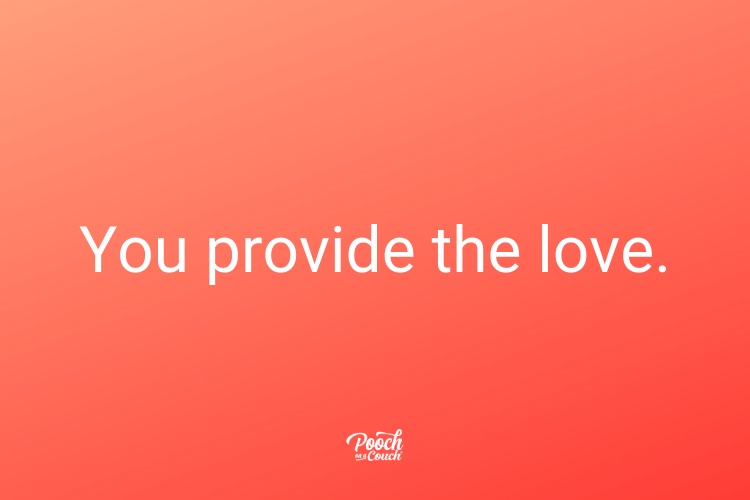
With the best of intentions, many agencies over-simplify the fostering experience. Love is good; but there’s more to it.
How Do I Become A Foster Home For Dogs?
Be Teachable.
I think the number one criteria for becoming a foster home for dogs is the desire to help a dog in need, having the passion for giving a homeless dog the best you can. Knowledge about dogs certainly helps, but it isn’t required. Being willing to learn, however, is critical.
Ask the rescue agency how they provide support when you need information or guidance. Don’t ask IF they provide support. The answer to that will be a “yes”.
You want to know that when you contact the agency for help with a need that they have a solid response plan.
Find a Mentor.
If you’ve never had a pet dog before and want to foster, my encouragement to you is to find someone who will mentor you through. Even as a pet owner, there were so many things I didn’t know about caring for pets. I’ve learned so much about dogs since becoming a foster dog parent!
Understand Policies.
You’ll want to ask questions about policies on approving foster dog homes. Many dog rescue agencies are going to have some rules (or exclusion criteria) available on their website. It’s a good idea to familiarize yourself with some of the more commons ones:
- all pets in your home must be up to date on core vaccines.
- all pets in your home must be spayed/neutered unless they are too young or a veterinarian says they shouldn’t be.
- Children in the home should be x years old or older.
- Fencing criteria
- housing criteria
- you have to have a home check.
Not every agency is going to be restrictive – many allow fosters to have infants, toddlers, young children. You can foster living in an apartment. You may not need a fence.
Also, some agencies have written policies on their website and they flex those policies from time to time. Some don’t flex at all. When you ask questions about fostering dogs, talk details about the agency’s written policies.
Don’t take policies personally, ask if there are exceptions, talk about why your family is an exception, and move on to the next agency if you still get a ‘no’.
Take a look at my “How To Foster Dogs: 10 Skills You Need To Know” for more thoughts on how to become a foster home for dogs. It may help you ask questions about fostering dogs.
How Is A Dog Chosen To Be My Foster Dog?
Expect To Participate In The Selection Of Your Foster Dog.
I think I can say with confidence that no reputable rescue agency is going to show up on your doorstep unannounced and hand you a foster dog. You are going to have a voice. You are going to be able to say, “no, not that dog.” You are going to be able to ask questions about fostering that particular dog.
You are going to be able to participate in the selection of a foster dog for your home and family. You are going to have an opportunity to ask questions about foster dogs available for you to choose the dog you think is the best fit.
You should expect to be able to participate.
Try To Not Be Super Picky When Choosing Your Foster Dog.
I should point out that often, agencies are not going to know everything about a foster dog. They won’t always know if a dog is house-trained or crate-trained or knows how to walk on a leash.
That’s your job as a foster home to teach a foster dog new skills. It’s gravy when a dog already has those skills.
Ask For Some Idea Of What To Expect.
That said, the rescue agency should have done some handling and/or assessment and be able to tell you some expectations of the dog before arrival.
You are going to want to know, for example, if your foster dog is timid, fearful, or overly active. You’ll also want to know if your new foster dog is sick and what the care plan will be.
Be Flexible. Expect support.
Do keep in mind that there is no guarantee that even with the best intentions or the most thorough assessment possible, a dog can behave completely different in your home. You’ll want to know that the rescue agency will be responsive if you call them in a crisis. No one wants to foster alone.
The longer you foster, the easier it is for the agency to place dogs that are a good fit for your home, family, and skillset. Also, the longer you foster, the more confident you become and the more comfortable you are in taking on a variety of dogs.
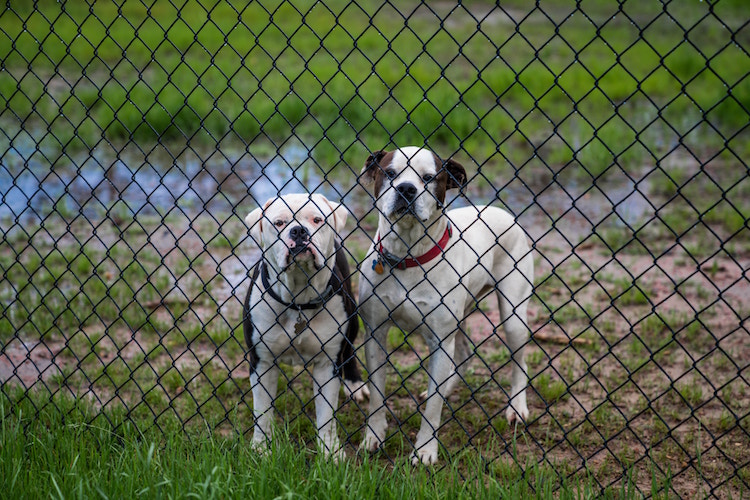
How Will My Foster Dog Get Adopted?
Whose Job Is It To Find A Home For My Foster Dog?
I’ve seen it written on other Foster Dog FAQ pages that you don’t have to worry about finding your dog a new home, the agency does that for you.
Sadly, that’s not always true. I want you to know that so that you can be proactive and prepared. I want you to formulate questions to ask about foster dogs and adoptions.
Most agencies have a process that assists the foster home with placement. It makes it a much more pleasant experience when your agency has a robust adoptions team to advise you on ways to help your foster dog shine in the best light possible, help with the hard stuff (photography and writing bios!) and help you participate in the selection of your foster dog’s perfect family.
It’s a lot of pressure on a foster home when the agency does not have a team approach to adoptions.
Understand Your Responsibilities For Adoption.
So ask that the agency walk you through their process of finding a foster dog’s forever family. Ask them: Do I have to attend adoption events? Do I have to find this dog a new home? How do I do that? Do I have to manage the contract, receive payment, do follow-up phone calls?
Read Create an Avatar for your foster dog for a creative way to find a forever family for your foster dog!

How Long Will A Foster Dog Stay With Me?
As long as it takes.
That didn’t tell you much, did it? But it’s the short answer to the truth.
The long answer is – it depends upon the dog you are fostering. It depends upon the agency.
If you are short-term fostering, you may have your dog for a few weeks. Puppies usually have to stay in foster care until they get their minimal vaccines. Dogs with special needs or certain goals can take a bit more time to foster – it just depends.
I’ve had fosters for three days and fosters for 3 months. I’ve had a couple of fosters who were with me for more than a year.
I encourage you to be as flexible as you can and allow that foster dog to stay with you for as long as it takes to get the dog into their permanent home. Dogs are resilient, but it is hard on them when they have to keep swapping homes. The best plan is for a foster dog to move from one foster home into their permanent home.
A great question to ask about fostering dogs is to ask the agency what is their average length of stay for foster dogs. An agency that is keeping good records will be able to give you an answer that represents their work.
Am I Responsible For Any Expenses?
Woo-wee this is an important question! When you ask questions about fostering dogs, you will want to ask this question to the rescue agency. Dig into the details to avoid any misunderstandings.
Normally, rescue agencies provide all medical expenses related to the foster dog. This should include:
- all vaccines
- all diagnostics (vet exam, fecal, heartworm test, etc)
- the spay/neuter surgery
- all medications
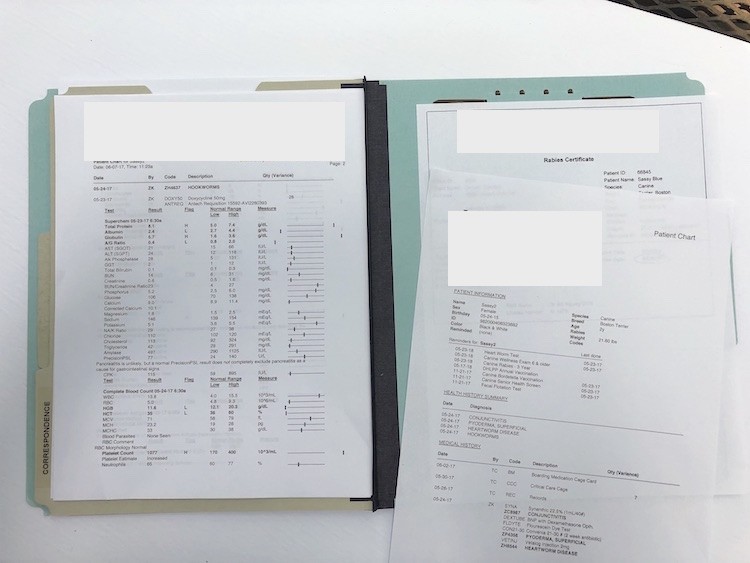
Food, Grooming, Supplies, and Preventives
Who Buys The Food? Is There A Rule About What Food is Fed?
Some rescue agencies will provide you with food for your foster dog, some ask you to provide food. Some agencies don’t care what you feed your foster dog, and some are going to want to have some say in what you feed. Get this out in the open early.
You may love feeding raw and your agency may say they don’t want their dogs fed raw meals.
The same goes for free-feeding. Ask the agency questions about their policy on feeding methods and be prepared to make some adjustments if they have a policy on how their dogs should be fed.
Do I Have To Trim Nails? And Other Grooming Questions.
All foster dogs need grooming. This always includes baths, ears, and nails. Sometimes it includes maintaining a dog’s coat.
What are you comfortable doing? Not doing? Hate trimming dog’s nails? Need a groomer or the vet to do that? Whose expense is that? Yours or the agency? Ask questions about caring for the grooming needs of foster dogs
One of my pet peeves is seeing a foster dog with un-trimmed nails. It is incredibly uncomfortable for the dog and long-term, can contribute to some joint discomfort. It may be a conversation you don’t want to have, but… for the sake of the dog, ask questions about how your foster dog will have its nails trimmed.
This is self-study facebook group is a great resource for helping dogs adjust to nail maintenance. Nail Maintenance For Dogs
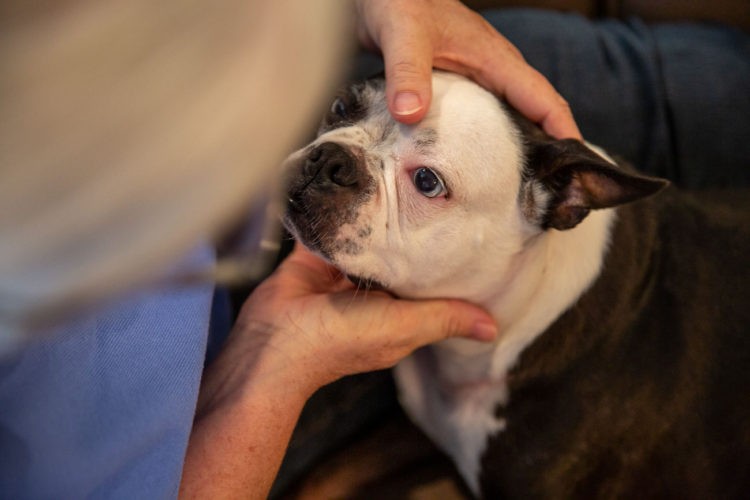
What Supplies Will I Need To Buy?
Remember that image above that says “all you provide is love?”
Welp…
You’ll need a crate. Baby gates. Exercise pens. Blankets, sweaters, toys, chews, training treats, collars, leashes, harnesses, dog shampoo, a place for medical records, need I go on?
Can you afford that, or do you have enough contacts that you can borrow what you need? Can your agency provide you with what you need?
Who Buys The Heartworm Preventive?
Are you responsible for paying for the heartworm preventive? Ask questions about this. How do you get the doses? Does the agency expect a certain product be used or avoided? Ask! I promise you your agency has an opinion on one product or another. You want to know their preferences.
Who Buys The Flea/Tick Preventive? Is This Even Allowed On The Foster Dog?
While the veterinary profession makes it pretty clear that fleas and ticks are health issues for dogs, rescue agencies are quite opinionated about the use of preventives.
I can’t overemphasize the importance of having this discussion with your rescue agency – how do they want you to keep their dogs flea/tick free? How do you want to keep your home and environment flea/tick free!?
insist that your foster dogs are flea/tick free before they arrive to your home.
You’ll also want to talk with them about the condition their dogs are in when they arrive at your home. I always insist that my foster dogs are flea/tick free before arrival. A flea population can multiply quickly! The rescue agency certainly isn’t going to pay a professional to treat a yard infestation!
Conversations like these are best had upfront before any issues present themselves.
Who pays for the unexpected?

Fault vs No-Fault
A perfectly healthy foster dog in your care can get sick through no fault of anyone. Rescue agencies should provide for any expenses that arise from naturally occurring health issues.
What happens if…….
But, some rescue agencies have a low tolerance for extra veterinary expenses caused by “preventable accidents”. You want to have a good heart-to-heart about what the agency means by this. Here are some examples of questions to ask about fostering dogs and accidents:
- what happens if your foster dog gets into the garbage and eats chicken bones?
- what happens if your foster dog corners wildlife and gets bitten?
- what happens if you get into a car accident with your foster dog and the dog is injured?
- what happens if there is a dog fight and one or both of the dogs requires vet care?
What About My Pets? Will They Be Safe?
This is probably one of the most important ask questions about fostering dogs you should ask!
Before you commit to a long string of foster dogs moving through your home on their way to their permanent home, you need to first commit to your family and your family pets. Period.
Maintain safety, physical health, and emotional health of ALL pets in your home.
You need to commit to these three things: Safety, physical health, and mental health.
- Safety: knowing the basics will take you far in fostering. Learn effective introduction methods, learn how to recognize inappropriate play, resource guarding, the need for some quiet time. Never assume that dogs can “figure out the pack order by themselves” – that doesn’t exist.
- Physical health: often, foster dogs come into rescue agencies harboring medical conditions that are contagious to dogs and can be contagious to humans. You need a plan on how you are going to keep your family and pets healthy. I quarantine most of my new foster dogs. In doing this, I’ve never infected any other pet in my home nor have I contracted a condition – even when I fostered a dog covered in ringworm!
- Mental health: fostering can be hard on your personal pets, especially when personalities don’t jive, or one of the dogs is lacking in a few social skills. Learn to listen to your pets – offer them breaks from fostering when you need to.

My dog Otis lacks some social skills and he hums along with low-level anxiety when his world is different or unpredictable. Bringing in a dog to foster is hard on Otis. It also helps him.
With the help of some mentoring, I’ve been able to make fostering work not only for me, but for Otis – and the foster dog. A little adjustment in routine has helped us help Otis welcome new foster dogs without the angst he used to display.
In contrast, a foster associate of mine ruined her well-balanced dog after expecting her dog to just take it on the chin with every foster dog that came into her home. She had to stop fostering because her dog became intolerant of the intrusion of foster dogs.
Ask Questions About Fostering Dogs When You Have Children.
Can I Foster Dogs If I Have Children?
A common question asked about fostering dogs is, “Can I foster dogs if I have children?
Maybe.
Most rescue agencies will accept families with young children into their foster program. Some agencies will have an age criteria.
You Must Commit to Managing Pets and Children.
That said, managing pets and children is an ongoing, daily endeavor. The challenge gets amplified a bit when you are bringing in an unknown dog into the home.
My first bit of advice is for you understand how you are managing your home and activity level, as well as to spend time approving the foster dog before the dog arrives to your home.
You need to be on your game. You need to have or procure equipment needed – baby gates, exercise pens, crates, etc.
You need to have some understanding of animal behavior and have some observation skills. You need to be able to respond to your children or your foster dog in a timely manner. You need to be able to keep both your children and your foster dog safe and well.
Prevent “Uh-Ohs”, Don’t Experience Them!
I sound like I’m talking you out of fostering if you have children. I am not. I’ve just seen a lot. I’m someone who’d rather see you prepared than unprepared. I’d rather see you equipped to prevent an uh-oh than experience one.
Decide which type of dog you are most comfortable fostering. Small? Young? Senior? Work with your rescue agency to select the type dog you want to foster and the dog that works better with a home with children.
Fostering Should Be A No-Guilt Zone
Do not feel guilty if the rescue agency does not have that type dog available at the moment, or feel bad that you cannot help because the dogs available to foster are not a good fit for your home. DO NOT FEEL GUILTY FOR SAYING “NO” to a foster dog in need.
When you have successful fostering experiences, you will foster longer. And I want you to love fostering for a really long time.
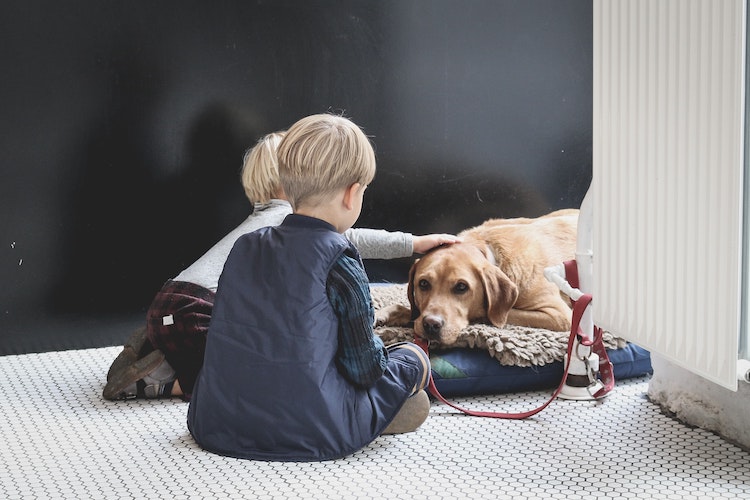
Can I Foster A Dog If I Work?
Absolutely! But. How long you are away from your home (how long a foster dog will be without humans) is an important detail. Discuss your schedule with the rescue agency. They should be able to let you know how they can use you as a foster home.
The good news is, most adoptable, healthy, adult foster dogs will do just fine with a full-time work schedule. Dogs that require extra care or frequent veterinary visits may not be the best fit for you.
Ask the rescue agency what they expect or desire in terms of training, socialization and adoption preparation.
Do carefully consider if fostering is right for you at this time if you work very long hours or if your work requires frequent travel. Do you really have time to devote to the needs of a foster dog?
Some agencies will prefer that dogs be crated while you are away, requiring the dog be allowed a mid-day break. If you have the means to provide for a pet-sitting service or have a neighbor that can help, all the better.
Can I Adopt My Foster Dog?
You are afraid you’ll get attached, aren’t you? I get you! I get attached to every single dog I foster. I think connecting with our foster dogs makes us good foster dog parents.
The short answer is – yes. Usually, the agency you foster through allows for foster homes to adopt their foster dogs. I’ve heard of a few agencies that do not allow adoptions so ask questions about fostering then adopting dogs.
Should you adopt your foster dog?
Think it through. There’s nothing wrong with adopting your foster dog. I’ve done it! I’ve also let many, many foster dogs go because their life would be better in someone else’s home. (I’m a good pet owner, but I also know that some dogs need things I cannot provide.)
The main reason I don’t adopt more fosters is that I always want to keep room open for a foster dog in need. I don’t want to adopt so many dogs that I no longer have room to foster any.
I Need To Stop Fostering. What Do I Do?
Life happens. Needs change.
There may come a time when you decide that you need to stop fostering. I made that decision once. It was hard but necessary.
Ask the Agency How They Respond to Emergencies.
I think this asking this question about fostering dogs is one of the most important questions you need to ask the agency: “What happens if I have an emergency or life change and need to stop fostering?” You want to know the agency’s protocol and how quickly they can respond.
If You Are Needing To Just Take A Break…
If you have the flexibility to see it through with the current dog you are fostering, do that. If you are able, wait until that dog is adopted, then close your fostering door. If the need is more urgent, your agency should have a plan to help.
What Other Questions About Fostering Dogs Do You Have?
Do you have other questions about fostering dogs? Let me know and I’ll do my best to help you find those answers.
Are you part of an agency that could use some help with your rescue policies and protocols? I’d love to take a look at what you have and make some recommendations.
Have you started fostering? I’d love to hear about your journey! Drop a line in comments or get in touch!
Peace, love, and happy fostering!
Popular Posts
How To Foster Dogs – 10 Skills You Need To Know
How To Choose A Dog Rescue Agency
Let Your Foster Dog Go – Tips For Adoption




